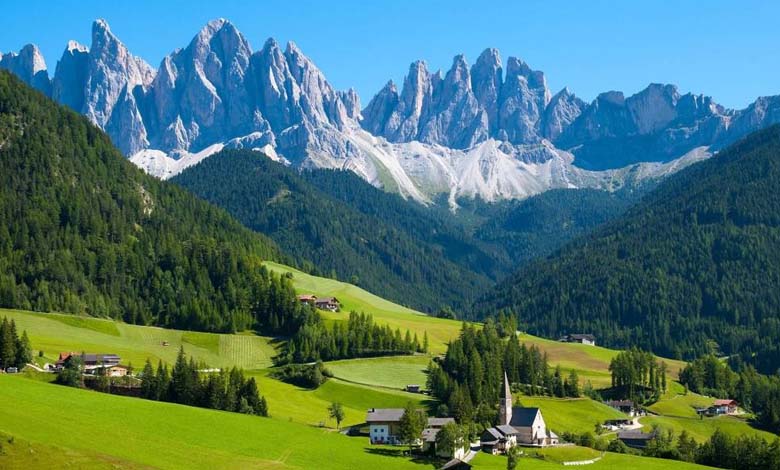To Avoid “Overtourism,” Switzerland Attempts to Control Visitor Numbers

The Swiss Tourism Board announced on Thursday that it is attempting to limit the number of visitors throughout the year to protect the country from the risks of overtourism.
The board stated that it would seek to encourage visits outside peak seasons and promote new destinations that do not attract large numbers of visitors.
Officials of the board said in a press conference in Zurich that they aim to guide tourists to “the right places, at the right time.”
According to the AFP, the head of the Swiss Tourism Board, Martin Nydegger, explained, “We do not suffer from overtourism in Switzerland generally,” but there are “temporary and local overcrowding cases, well known in the sector.”
For instance, the village of Iseltwald in central Switzerland suddenly saw a large influx of Asian tourists on the shores of Lake Brienz last year after the huge success of the South Korean series “Crash Landing on You” on Netflix. The village, with a population of about 400 people, decided to impose a fee of five Swiss francs ($5.55) on tourists wanting to ride the floating boat to take a picture at a location where a romantic scene was filmed.
Nydegger said that the Swiss generally have a positive opinion about the tourism sector. According to a survey conducted by the board, only five percent of them have concerns related to tourism.
Damian Constantin, president of the Conference of Regional Tourism Office Directors, stated that “the strength of the Swiss franc is a defensive factor because it limits access to mass tourism.”
He pointed out that in addition to the strong currency, the high cost of living makes Switzerland an expensive destination to visit, which reduces the risks of overtourism.
Nevertheless, the Swiss Tourism Board wants to be proactive in protecting a sector that generates 43 billion francs ($48 billion) annually and accounts for 4.5 percent of the country’s GDP, according to Nydegger.
The Swiss Tourism Board plans to work with tour operators to promote new destinations, such as hiking trails and e-bike tours in the luxurious winter ski resort of Davos, which is being promoted with the help of Chinese online content creators.
They have also launched campaigns to promote tourism during the fall to extend the summer season.












